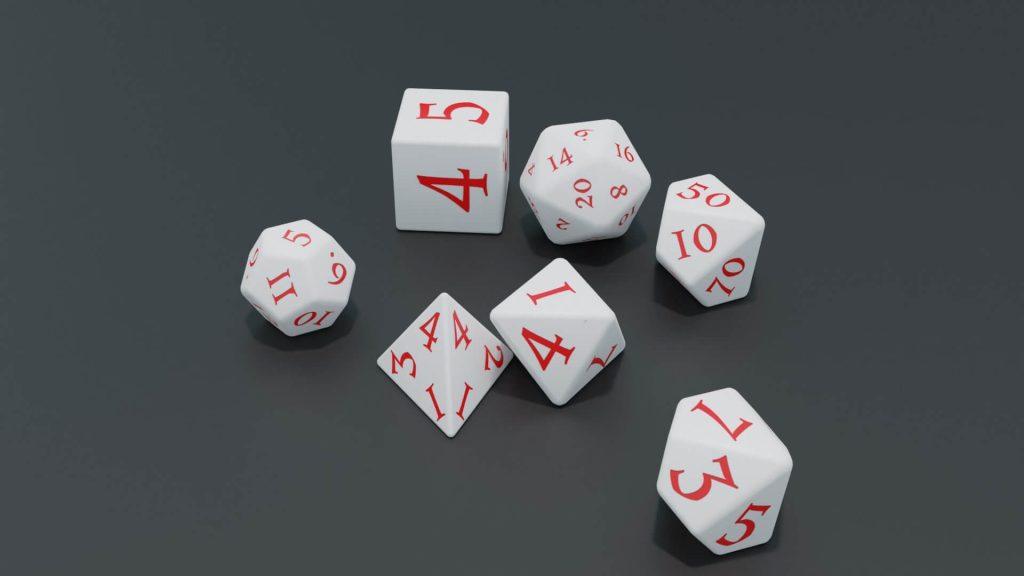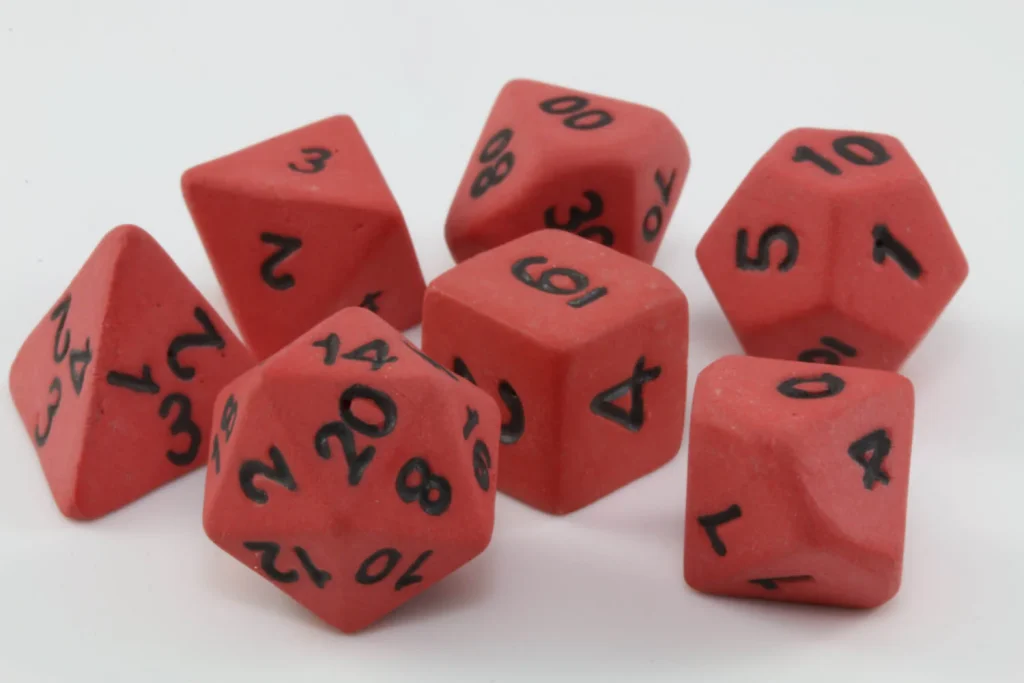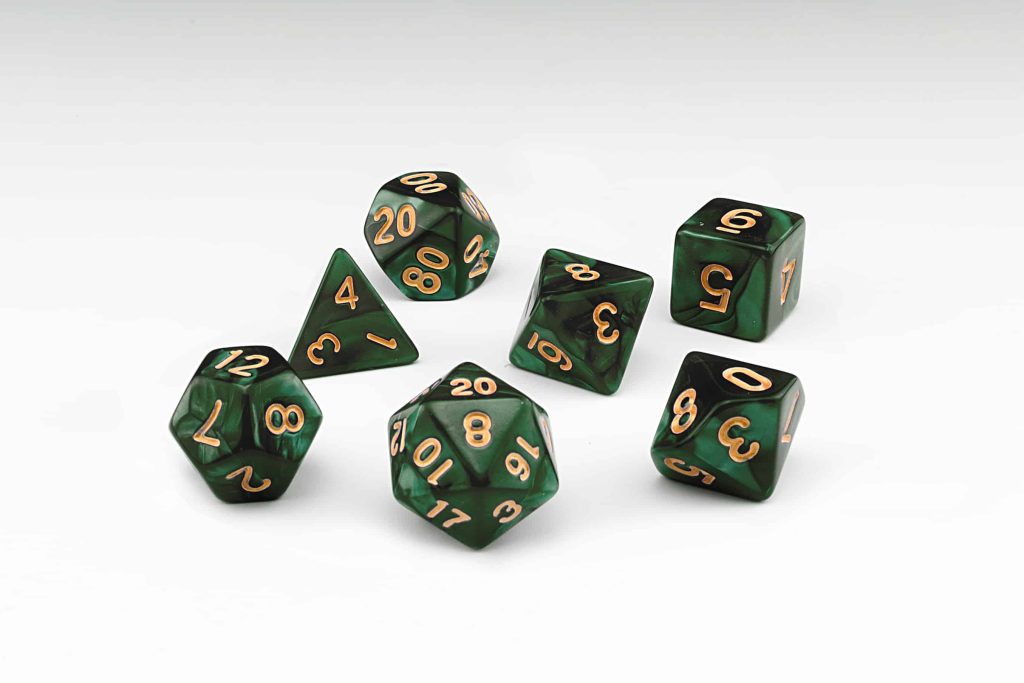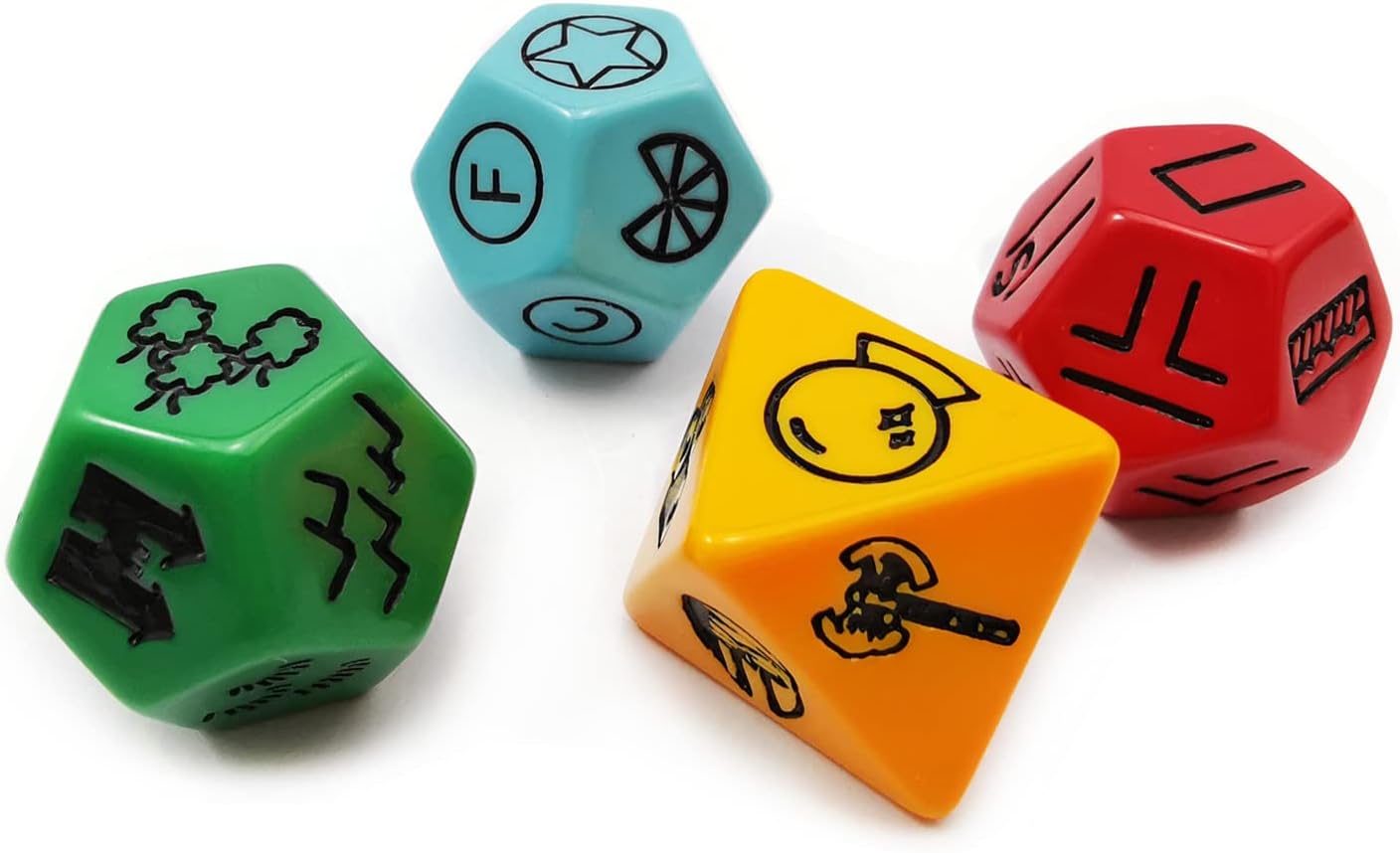Introduction
Dice role-playing games (RPGs) have long been a staple in tabletop gaming, bringing together elements of storytelling, strategy, and chance. These games provide players with immersive experiences where they assume the roles of different characters, engage in quests, and face various challenges. The foundation of these games lies in dice mechanics, which determine outcomes based on probability, skill, and sometimes sheer luck. Whether playing in a fantasy realm filled with dragons or a sci-fi universe brimming with advanced technology, dice RPGs offer limitless possibilities for creativity and adventure.

The History Of Dice Role-Playing Games
Dice-based RPGs trace their origins to wargaming, where miniature-based strategic battles inspired the concept of character-driven narratives. In the 1970s, Dungeons & Dragons (D&D) emerged as the first widely recognized RPG, incorporating polyhedral dice to dictate actions and combat outcomes. This innovation laid the groundwork for future games, inspiring a genre that continues to evolve. Over the decades, RPG systems have diversified, with different rulesets, settings, and game mechanics shaping the landscape of modern tabletop gaming.
How Dice Role-Playing Shape Gameplay?
Dice serve as the core mechanics of RPGs, influencing everything from combat to decision-making. The most common dice used in these games are polyhedral dice sets, which typically include d4, d6, d8, d10, d12, and d20. Each game employs these dice differently, but their primary function is to introduce an element of chance while maintaining a balanced system of progression. Players roll dice to determine attacks, skill checks, and other in-game actions. Game Masters (GMs) use dice to generate events, encounters, and outcomes that add an element of unpredictability to the narrative.
Popular Dice Role-Playing RPG Systems
Various RPG systems utilize dice mechanics uniquely, offering distinct gameplay experiences. Dungeons & Dragons (D&D) remains the most popular, using a d20 system to resolve actions based on difficulty checks. Call of Cthulhu, a horror RPG, employs percentile dice (d100) to determine sanity levels and investigative success. Shadowrun incorporates d6-based pools, reflecting a cyberpunk world of hackers and mercenaries. Other notable systems, like Pathfinder, GURPS (Generic Universal RolePlaying System), and Fate, provide alternative rule sets and storytelling approaches, each appealing to different playstyles.
Character Creation And Development
Character creation is a vital aspect of dice RPGs, where players build unique personas with various attributes. Typically, this process involves assigning numerical values to core attributes like Strength, Dexterity, Intelligence, and Charisma, which are modified through dice rolls. As characters progress, they level up, gaining new abilities, spells, or equipment. Some RPGs use class-based systems, like D&D, while others allow free-form development, enabling players to shape their characters dynamically.
The Role Of The Game Master
The Game Master (GM) plays a crucial role in dice RPGs, serving as the storyteller, referee, and world-builder. The GM creates the setting, describes scenarios, and enforces rules while ensuring a balanced experience for all players. They roll dice to determine enemy actions, environmental effects, and unpredictable events. A skilled GM adapts to player choices, making the game feel organic and immersive. Whether guiding a structured campaign or improvising based on player actions, the GM’s role is essential in maintaining an engaging narrative.

The Influence Of Randomness And Strategy
Dice RPGs balance randomness and strategy, making them engaging and unpredictable. While dice rolls introduce an element of chance, strategic decision-making remains a key component. Players must manage resources, develop tactics, and anticipate possible outcomes. The interaction between randomness and player choices adds depth to the experience, ensuring no two sessions are identical. Some RPGs mitigate randomness through modifiers, skills, and rerolls, allowing players to exert some control over their fate.
Dice Role-Playing And Storytelling Elements
Beyond mechanics, dice RPGs emphasize storytelling and role-playing. Players adopt personas, interacting with the game world and each other through dialogue, decision-making, and problem-solving. Many games encourage improvisation, creativity, and collaborative storytelling. Whether negotiating with a king, solving a mystery, or battling mythical creatures, role-playing fosters deeper engagement. Some players focus on character development, while others enjoy strategic combat, making dice RPGs appealing to a wide audience.
Online And Digital Adaptations
With the rise of digital platforms, dice RPGs have expanded beyond traditional tabletop settings. Online tools like Roll20, Fantasy Grounds, and D&D Beyond enable virtual gameplay, allowing players to connect remotely. Automated dice rollers, interactive maps, and digital character sheets streamline the experience. Virtual RPGs have made gaming more accessible, bridging gaps for players worldwide. Additionally, video games inspired by dice RPGs, such as Baldur’s Gate and Divinity: Original Sin, incorporate similar mechanics in a digital format.
The Social And Psychological Benefits
Dice RPGs offer numerous social and psychological benefits, fostering creativity, teamwork, and problem-solving skills. Playing these games enhances critical thinking, encourages collaboration, and strengthens interpersonal relationships. For many, RPGs serve as an escape, allowing them to explore different personas and narratives. Additionally, dice RPGs have therapeutic applications, helping individuals develop communication skills, confidence, and emotional expression. The inclusive nature of RPG communities has also created safe spaces for diverse groups of players.
How To Dice Role-Playing Overcome Them?
While dice RPGs are immersive and enjoyable, they come with challenges. One common issue is rules complexity, as some systems have intricate mechanics that may overwhelm new players. Choosing beginner-friendly games or using simplified rule sets can help ease the learning curve. Another challenge is player coordination, especially in long-term campaigns. Scheduling tools and clear communication can ensure consistency. Additionally, unbalanced gameplay may arise if dice rolls favor certain players disproportionately. GMs can address this by implementing house rules, offering rerolls, or adjusting game difficulty.
The Future Of Dice Role-Playing Games
The future of dice RPGs looks promising, with continued innovations in game design, storytelling, and accessibility. Hybrid RPGs, combining traditional dice mechanics with dice Role-Playing digital enhancements, are gaining popularity. Augmented reality (AR) and artificial intelligence (AI) may further enhance RPG experiences, providing dynamic storytelling and adaptive game environments. Crowdsourced content, such as community-created campaigns and homebrew rules, continues to expand possibilities. As RPG culture grows, more players, including younger generations, are discovering the joy of immersive storytelling and strategic gameplay.

Conclusion
Dice role-playing games remain a beloved pastime, blending chance, strategy, and storytelling into one compelling experience. Whether played at a table with friends or through digital platforms, these games offer limitless creativity and engagement. From classic fantasy adventures to sci-fi epics, dice RPGs continue to evolve, shaping the way players interact with narratives and each other. As technology advances and communities expand, the world of dice RPGs will undoubtedly thrive, offering new generations of players the chance to embark on unforgettable adventures.

